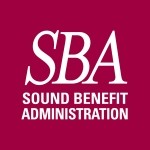Years ago, when I started this business, I instructed clients to send FSA payroll deductions to us and we would pay claims from that money. The same for HRA claims. This was common practice in our industry. Along the way I attended several EBIA (Employee Benefit Institute of America) seminars where benefit lawyers would tell me we shouldn’t be collecting money because it constituted an ERISA Trust violation. In fact, Congress changed the laws in an effort to protect clients and participants from bad-actor third-party administrators who might go bankrupt and run off with all the FSA and/or HRA contributions, which apparently was a thing. This article explains why we closed our business for two weeks in 2014, reconciled every account and returned all “plan assets” to every client.
The FSA Trust Regulations:
The Department of Labor regulations state that participant contributions (amounts that a participant has withheld by an employer for a contribution to a Flexible Spending Account plan) are always considered plan assets. The general rule of ERISA 403(a) requires that plan assets be held in a separate trust by one or more trustees subject to the DOL Technical Release 92-01. Additionally, Form 5500 reporting must be filed annually for each separate trust plan account, if held by the third-party administrator, regardless of client size. At SBA, prior to 2014, we were not putting plan assets for each client in separate accounts, nor were we preparing separate Form 5500’s for each account annually. Clearly, we needed a to develop a different way of doing things or find ourselves in violation of ERIA and subject to penalties.
The DOL, does, however, provide an exception to the trust requirement if the assets are held by the employer. In this case, it permits the employer to keep the FSA contributions on their general ledger. Claims are paid by the employer from the employer’s general checking account provided there is an accounting of all participant contributions, reimbursements, and administrative expenses for the plan year (we do this for every client). Without this accounting, an employer couldn’t prove that plan assets were used only for plan purposes and would violate the trust exception.
Taking advantage of this exception, since 2014, we have offered FSA clients four options for reimbursing participants:
- We notify the employer of which participants need to be reimbursed and the amount. The employer reimburses the participant(s) directly.
- Same as #1 only SBA is given authority to write checks on the employer’s general account.
- Same as above only we initiate a debit from the employer’s general checking account and credit the personal bank account of the participant(s).
- Debit cards are issued to all participants and all card swipes are debited from the employer’s general account.
In all these cases, no funds are ever transferred into SBA’s bank account thus adhering to the DOL exception.
What about HRAs?
Health Reimbursement Arrangement plans are also covered by ERISA and subject to the same ERISA/trust problems. As with FSAs, before 2014, we asked HRA clients to send money to us. In the case of HRAs, we asked for “seed money” to pay claims. For example, if an HRA would reimburse $2,000 per participant, we might ask for $4,000 as “seed money” to pay claims. Each month we would reconcile the account and ask for more money if we reimbursed one or more claims. The problem was, because we held those assets in our account, the seed money was considered plan assets by ERISA.
Today we notify the employer of who needs reimbursed and how much and either 1) the employer reimburses the participant directly or 2) we initiate a debit from the employer’s account and credit the personal bank account of the participant. Again, no monies ever reach SBA.
There is one more banking option that some TPAs may offer, but there are complications to this method which do not handily satisfy the Department of Labor exception and therefore are not options offered by SBA. In this case, the third-party administrator opens a separate bank account for each FSA or HRA. Each week the third-party administrator tells the employer how much to transfer into the account to pay claims. It becomes a zero-balance account that does not accumulate plan assets but only pays out as much as is claimed.
While some third-party administrators still comingle plan assets in a bank account in their name, we have “trust issues” and we want to keep our clients and ourselves squeaky clean if we are ever audited. Our claim processing turnaround slowed a bit as a result, but I can sleep at night knowing we’re all on the right side of the law.
